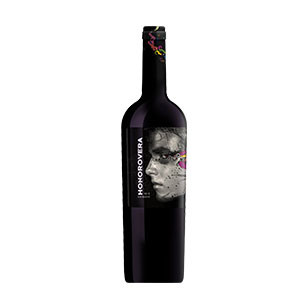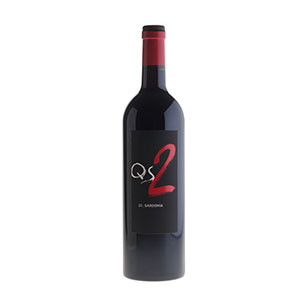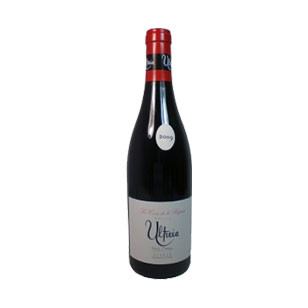Product Description
A low mist often covers the woods beside the River Bibei until well into morning. The surprising sight of the river spanned by the roman bridge invites retreat and prayer. History has left its trace in a place rich cultural, ethnographic and gastronomic heritage. It is said that the old roman were the first to grow vines in the area. Today, the vines are still planted in the deep valleys and in the gorges of the river there by being the harvest almost heroi task.
Altitude varies between 300 and 670 meters, the vine stock is buried in acidic soil with little organic matter in which loam and clay predominate. Most of the soil lies on heavy weathered granite and slate bases. The Ribeira Sacra mutates every year and with it the grape also changes, acquiring unforeseen nuances year after year. A new wine every harvest. Perhaps this is the charm of the wines. A new grape passes through the winery every year. They harvest it as if it was the first : the same enthusiasm, the same expectation, the same care. Always trusting that their experience and what they have learnt leave their necessary mark. At Dominio do Bibei they like to face challenges in this way :With the eyes of a child and hands of an old man.
VINEYARDS. Vines aged between 8 and 100 years planted in schistcus and state soil. Altitude between 400 and 750 meters. All exposures. Training system is goblet and double cordon.
VINIFICATION. Hand harvested using 10kg cases. The grapes were hand sorted in the vineyards and then in the bodega. In cold storage chamber at 2℃ during 48-72 hours. De-stemming during 24 hours. Individual vinification depending on variety,soil,altitude and exposition. Fermentation in 600L French oak barrels of different ages. Slow fermentation between 12℃and 17℃.
AGEING. First part kept in 600L French oak barriques, 1200L and 2400L Austrian foudres of many ages. Second part in concrete tanks to reach natural stabilization. Kept on its lees for 9 months. No malolactic fermentation.





 Dry White. 80% Godello, 15% Albarinio , 5% dona blanca.
Dry White. 80% Godello, 15% Albarinio , 5% dona blanca. Gold with greenish reflections
Gold with greenish reflections 13.5% vol
13.5% vol White fruit, pear and floral aromas appear on the nose. Ripe nuances nicely blended with balsamic notes of fresh mint.
White fruit, pear and floral aromas appear on the nose. Ripe nuances nicely blended with balsamic notes of fresh mint. D.O. Ribeira Sacra
D.O. Ribeira Sacra
 Elegant and rich on the palate, good acidity. A persistent baked apple aftertaste is noted.
Elegant and rich on the palate, good acidity. A persistent baked apple aftertaste is noted. 9months in French oak barrels and Austrian foudres
9months in French oak barrels and Austrian foudres Appetizer , complex salads, white meat, grilled seafood, seafood in sauce, grilled white fish.
Appetizer , complex salads, white meat, grilled seafood, seafood in sauce, grilled white fish. 12℃-13℃
Decanting recommended.
12℃-13℃
Decanting recommended.  WA: 92 points
WA: 92 points 
 Dry Red. 100% Grenache
Dry Red. 100% Grenache
 Mature cherry with a garnet edge
Mature cherry with a garnet edge 
